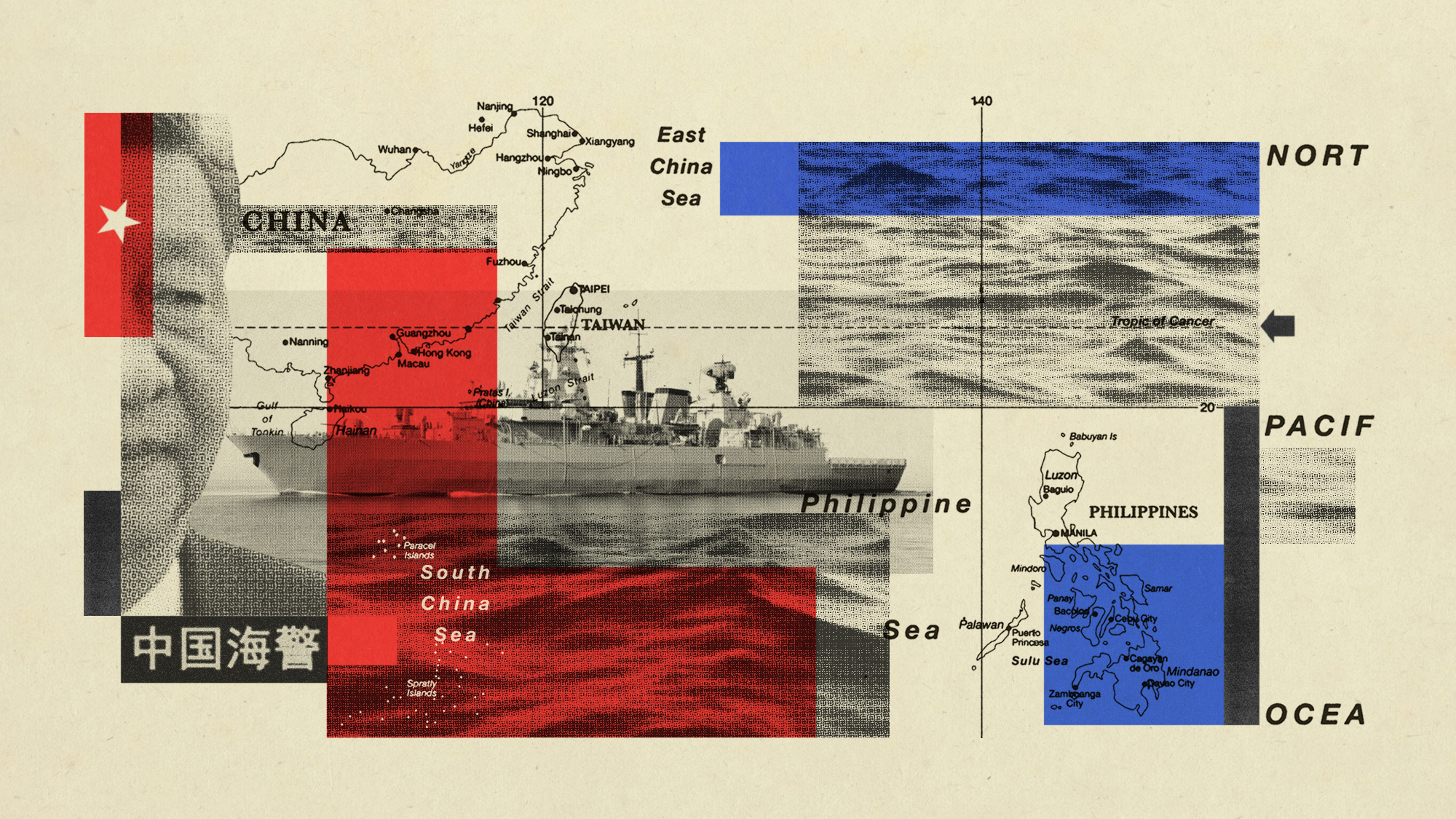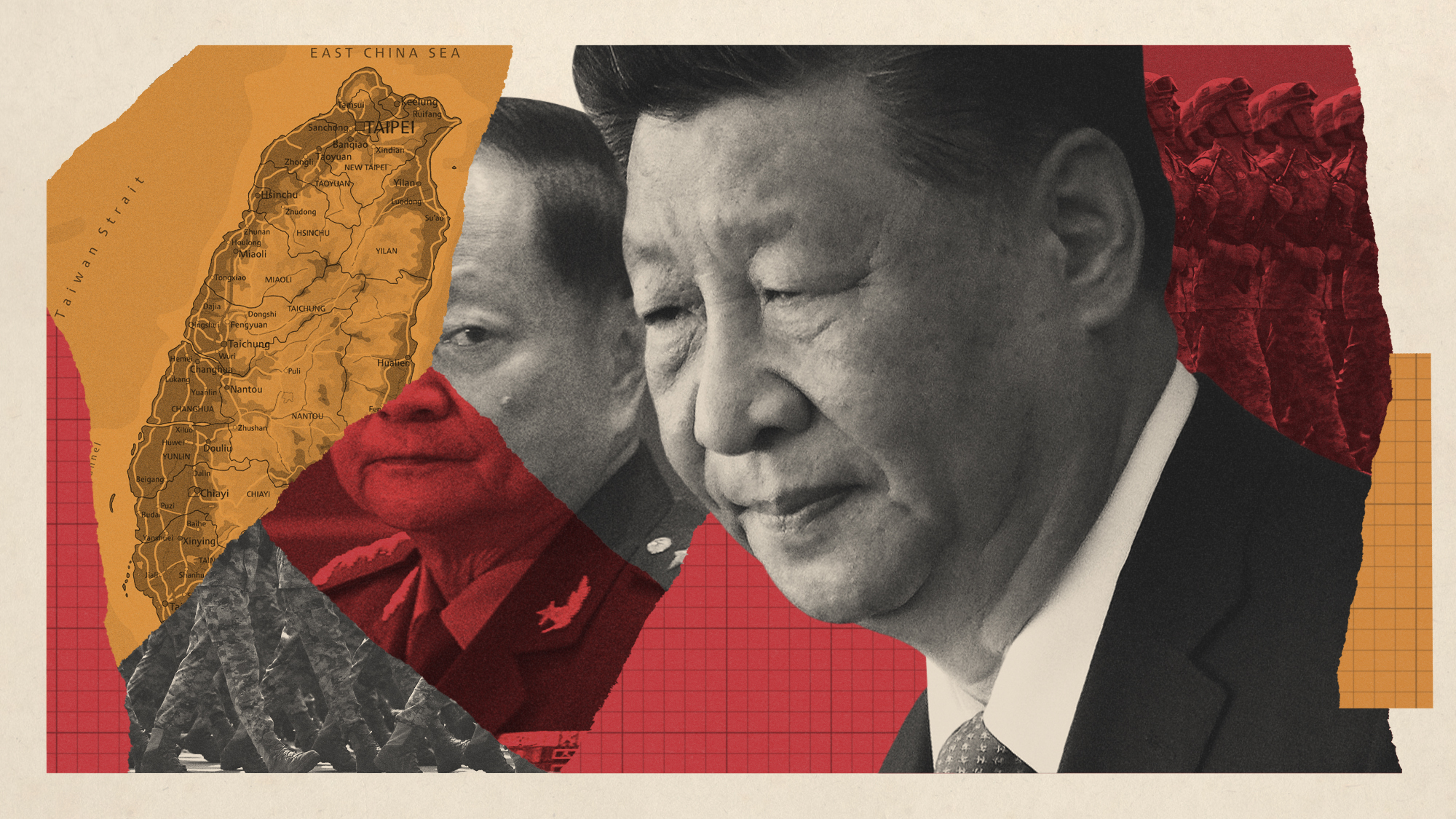Could World War III start in the Philippines?
Clashes bring U.S., China closer to conflict


A free daily email with the biggest news stories of the day – and the best features from TheWeek.com
You are now subscribed
Your newsletter sign-up was successful
Tensions are rising in the South China Sea again. Recent videos from the Philippine military showed "Chinese Coast Guard personnel ramming and boarding Philippine naval boats and confiscating their weapons," said Deutsche Welle. It's the latest in a series of frequent clashes between the two countries that observers worry could eventually spark a larger conflict involving the United States. "The risk of an accident that escalates to conflict is high," said Bonnie Glaser of the German Marshall Fund of the United States.
There's a risk that China and the United States — which has a mutual defense treaty with the Philippines — are "sleepwalking toward World War III" in the region, the Global Policy Institute's Bob Savic said in the Asia Times. China recently announced it would arrest foreign nationals in disputed waters it claims as its own; Philippine President Ferdinand Marcos Jr., meanwhile, has said he would treat the death of any of his countrymen in the encounters as an "act of war." It's easy to see how things could get out of hand, even with diplomats on both sides working to prevent escalation. "A peaceful outcome should not be taken for granted."
What did the commentators say?
"The odds of armed conflict in the South China Sea are high and rising," Derek Grossman said at Foreign Policy. China's increasingly aggressive actions have put the "Philippines in an ever-tightening stranglehold that is increasingly compromising the latter's sovereignty and territorial integrity at sea." However, neither the Philippines nor the United States seems sure how to respond. One possibility is treating "gray zone" attacks on Filipino ships — involving water cannons, lasers and boat-ramming but no weaponry — as "armed attacks" that would bring direct American intervention. The point is not to start a war but to "reestablish deterrence and lessen the risk of war in the years to come."
The Week
Escape your echo chamber. Get the facts behind the news, plus analysis from multiple perspectives.

Sign up for The Week's Free Newsletters
From our morning news briefing to a weekly Good News Newsletter, get the best of The Week delivered directly to your inbox.
From our morning news briefing to a weekly Good News Newsletter, get the best of The Week delivered directly to your inbox.
"The U.S. and the Philippines need to further adapt their century-old alliance to meet current threats," Richard Heydarian said at Nikkei Asia. American leaders might consider "having U.S. drones or navy frigates shadow Philippine supply convoys" to signal their commitment "without getting directly involved." The U.S. could also furnish some of its own decommissioned craft to the Philippines to boost that country's capabilities. Bottom line: "The U.S. must back up its own lofty rhetoric in support of Manila with concrete support for its besieged treaty ally."
What next?
"We are not in the business to instigate wars," Marcos said after the most recent incident, according to The Associated Press. But he added that his country would not back down from "any foreign power." The United States has also reaffirmed its support of the Philippines, asserting that China's "dangerous actions threatened regional peace and stability," said NBC News.
One bright sign? "Washington and Beijing are talking more regularly to avoid a conflict in the South China Sea," said the BBC. Observers seem to agree on two things: The rising tensions could get out of hand — and nobody actually wants that. "Our militaries are operating in very close proximity to one another in the South China Sea and in the Taiwan Strait," said Nicholas Burns, the American ambassador to China. "You don't want to send the wrong signal."
A free daily email with the biggest news stories of the day – and the best features from TheWeek.com
Joel Mathis is a writer with 30 years of newspaper and online journalism experience. His work also regularly appears in National Geographic and The Kansas City Star. His awards include best online commentary at the Online News Association and (twice) at the City and Regional Magazine Association.
-
 ‘Poor time management isn’t just an inconvenience’
‘Poor time management isn’t just an inconvenience’Instant Opinion Opinion, comment and editorials of the day
-
 Bad Bunny’s Super Bowl: A win for unity
Bad Bunny’s Super Bowl: A win for unityFeature The global superstar's halftime show was a celebration for everyone to enjoy
-
 Book reviews: ‘Bonfire of the Murdochs’ and ‘The Typewriter and the Guillotine’
Book reviews: ‘Bonfire of the Murdochs’ and ‘The Typewriter and the Guillotine’Feature New insights into the Murdoch family’s turmoil and a renowned journalist’s time in pre-World War II Paris
-
 How are Democrats turning DOJ lemons into partisan lemonade?
How are Democrats turning DOJ lemons into partisan lemonade?TODAY’S BIG QUESTION As the Trump administration continues to try — and fail — at indicting its political enemies, Democratic lawmakers have begun seizing the moment for themselves
-
 How did ‘wine moms’ become the face of anti-ICE protests?
How did ‘wine moms’ become the face of anti-ICE protests?Today’s Big Question Women lead the resistance to Trump’s deportations
-
 The UK expands its Hong Kong visa scheme
The UK expands its Hong Kong visa schemeThe Explainer Around 26,000 additional arrivals expected in the UK as government widens eligibility in response to crackdown on rights in former colony
-
 ‘Hong Kong is stable because it has been muzzled’
‘Hong Kong is stable because it has been muzzled’Instant Opinion Opinion, comment and editorials of the day
-
 How are Democrats trying to reform ICE?
How are Democrats trying to reform ICE?Today’s Big Question Democratic leadership has put forth several demands for the agency
-
 ‘Bad Bunny’s music feels inclusive and exclusive at the same time’
‘Bad Bunny’s music feels inclusive and exclusive at the same time’Instant Opinion Opinion, comment and editorials of the day
-
 What do Xi’s military purges mean for Taiwan?
What do Xi’s military purges mean for Taiwan?Today’s Big Question Analysts say China’s leader is still focused on reunification
-
 Why is Tulsi Gabbard trying to relitigate the 2020 election now?
Why is Tulsi Gabbard trying to relitigate the 2020 election now?Today's Big Question Trump has never conceded his loss that year
